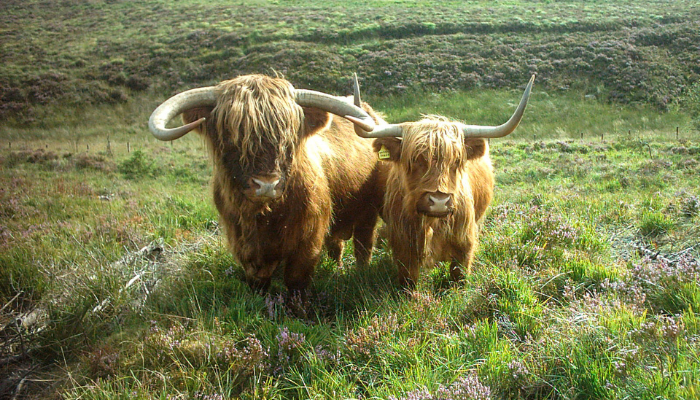Food - what we are calling for
Published: 26 May 2021
Organic farm belonging to Nigel Elgar, of Cannon farm in Montgomeryshire, has been fully organic since 1993.
How land is farmed also has a very significant impact on all aspects of environmental performance. In many cases current farming practices are not sustainable enough and farmers need to be supported to transition to more sustainable farming methods, as well as supported to diversify (for example, through increasing Welsh timber production). Some farmers are at the forefront of this change (for example the Nature Friendly Farming Network) and we need a system in place to support many more to make this transition. It is particularly important to align payments to farmers with sustainable farming practices, following the ethos of public money for public goods, and supporting good practice.
We were therefore pleased that the Welsh Government have consulted on a new Sustainable Farming and Our Land policy and are advocating a move towards a sustainable land management system of farming.
We would like to see support for:
-
Whole farm systems which support nature and carbon sequestration, which would deliver the greatest range of beneficial outcomes (this includes organic production, regenerative agriculture, and no-till farming)
-
Agroforestry, woodland creation and restoration, and increasing hedgerows
-
Lower inputs including fertilisers, pesticides, and antibiotics. The EU has set a target to reduce pesticide use by 50% by 2030
-
Improving soil health and reducing ammonia pollution
-
Improving animal health and welfare, with pasture-fed livestock
-
Habitat protection, restoration and creation.
Importantly, given that a large proportion of Welsh farmers are tenants with short-term tenancies (5 years or so) there is a need to ensure that necessary changes to farming payments as a result of Brexit works for them, including for longer term activities such as tree planting.
Less but better
The evidence of the need to reduce meat and dairy consumption for climate change reasons is now overwhelming. It also aligns with health advice. Friends of the Earth and others are calling for a 50% reduction in meat and dairy consumption by 2030. The focus for food and farming policy in Wales must be for less but better production, and the Welsh Government must actively use its influence and campaign against any future UK trade deals that would undermine this approach by allowing less sustainable imports to flood the market. Lower levels of meat and dairy production opens up the opportunity for agroforestry and woodland creation. Some of the new woodland must be reserved for wildlife but some can be used for timber production. Producing more timber in Wales would help reduce the huge levels of timber imports into the UK, as well as provide additional timber for the increasing use of timber in the construction of buildings.
We would also like to see a commitment to maintain the ban on GM crops designed for intensive and environmentally harmful farming.
Food labelling
To help the Welsh economy and the sustainability of farming, food production and consumption should be kept local as much as possible and there should be a strong emphasis on this in all public sector procurement.
A new voluntary Welsh food eco-label scheme, indicating the amount of emissions involved in making and getting a product to market, developed with producers and civil society groups, could support people to buy locally.
The long-distance international import and export of foods that can be grown in Wales makes no sense environmentally and is not resilient to international supply-chain breakages.
If we buy a washing machine or fridge, it comes with an energy efficiency rating, so why not food?
All public procurement of food should prioritise the purchase of Welsh produced food, and as local as possible, and the meeting of healthy eating standards which require a significant reduction of meat and dairy consumption. Developing a voluntary Welsh eco-label would aid this.
Carbon Trust research in 2019 found that two-thirds of consumers support the idea of a recognisable carbon label to demonstrate that products have been made with a commitment to measuring and reducing their carbon footprint.
In January 2020, Quorn became the first major brand to introduce carbon labelling on its products.

